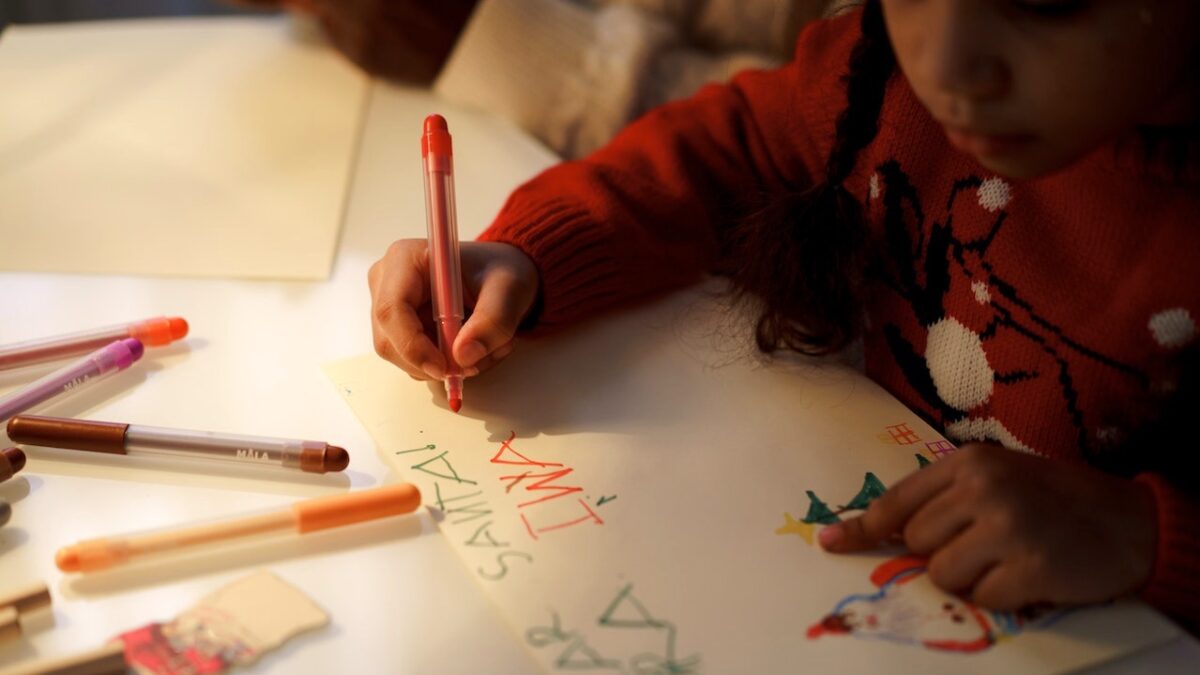Dec. 25 falling on a Sunday reminds me of one particularly magical Christmas past.
My age at that time is completely elusive to me now, but suffice it to say I still believed in Santa Claus — yet suspicion was bubbling. When my brother and I awoke that Christmas Sunday to no presents under the tree, my parents didn’t seem half as bothered as we did. They had contacted the North Pole ahead of time, they intoned, to let Santa and his helpers know that since we had plans to attend church in the morning and wouldn’t be opening gifts until after, he could make our house one of his last stops. He probably just hasn’t gotten here yet, they said.
So we gussied up ourselves — probably in whatever red tartan get-ups my mother had waiting for us — and hauled off to church. I don’t remember anything in particular about that service, except that my father must have been out in the foyer fulfilling ushering responsibilities, as was routine. But when we returned home, an assortment of festive packages filled our stockings and spilled out from under the tree. Our belief in jolly old St. Nick was restored.
I later learned my father had, of course, raced home after finishing his ushering duties to arrange the gifts — pretty sneaky, that one!
That was probably also about the time I began realizing that not only did some of my little friends never believe in Santa, but their parents were also a bit hostile to the whole enterprise — and perhaps even to my parents for participating in the ruse. One of their top arguments for shunning the magical fat man went: When your kids learn you lied to them about Santa, they’ll doubt everything you’ve ever told them about Jesus.
The ‘Santa Myth’ Myth
That’s a nice thought, and the former fundamentalist in me can appreciate the rigid adherence to principled puritanism. But at the center of my parents’ dedication to the Santa deception, as evidenced by that Christmas Sunday, was the clear message that the reason for the season wasn’t some white-bearded omniscient resident of a faraway land somehow colder than Wisconsin. Priority was remembering and worshipping the Christ Child with fellow believers.
Secondarily — though not unimportantly — was indulging our youthful imaginations with covert shopping and gift-wrapping, the excited watching of the NORAD Santa tracker, and the stealthy arranging of parcels beneath the tree while we kids were sound asleep. Like anticipating the tooth fairy or tick-or-treating on Halloween, there’s a way to cultivate simple yet unforgettable childhood joys that embrace creativity and good, clean fun.
Of course, there’s a wrong way to do Santa. The secular extreme is to minimize Baby Jesus while essentially worshipping Kris Kringle or leaning too heavily into the parental bribery and conditional love of the naughty and nice lists. It’s wrong to take God lightly and Santa seriously, though it should go without saying that’s not exactly a Santa problem. Looking back, however, the greater threat to my developing Christian faith than the revelation that my parents had participated in a good-natured subterfuge was the uptight scolds who shunned Santa — and in a roundabout way my faithful Christian parents.
Your children will never trust you once your lie is exposed. Dishonesty is always wrong. Santa unjumbled spells “Satan.” St. Nick is nothing but a secular Jesus who distracts from truth. The censure of parents like mine and their fantastical traditions took many forms, all while these parents’ little know-it-all hellions ran around spoiling the magic for other people’s imaginative kids.
As Michael Brendan Dougherty wrote years ago in The Week, “Unless your commitment to Santa and to God look roughly equivalent, there’s probably not much danger that St. Nick will ruin your kids for religion. But humorlessness and literalism might do the trick.”
Not all parents who oppose the Santa lie are like this, and there are even some things I wish my parents had done differently, such as teaching us the story of the real St. Nicholas. But they centralized the Gospel truth and gave us enough magic to last a lifetime. Now it will be my job with my future youngsters to carry on the best parts of that tradition and add in historical beauties wherever I can.
An Innocence Project
In these very pages last week, my colleague Jordan Boyd made a compelling case against lying to your children about Santa Claus, writing:
One of the most obvious rationales for abandoning fanfare about Santa is that it requires blatant lying. At a time when every institution in the U.S. seeks to distance children from their parents, I want my kids to know they can and should trust me and my husband with their lives, hopes, dreams, grief, and hardships. I also want them to know they can trust God with those.
Her idea is that kids experience an endless supply of people and institutions that lie to them and that the best thing their parents can do is not to deceive their children about one more thing.
But the logical counterpoint — a closely related problem that’s perhaps even bigger — is that there’s a neverending parade of adults robbing kids of childhood purity, wonder, and imagination. In a predatory world that insists on telling kindergarteners about sex, scares kids with a virus that is virtually no harm to them and causes their brains to age prematurely by keeping them isolated at home, peddles puberty confusion and irreversible transgender interventions to minors, encourages those same minors to get abortions, and markets nicotine, smartphones, and porn to them like candy, cultivating youthful innocence and fancy seems a suitable antidote.
In fact, rediscovering make-believe could go a long way toward developing the type of thoughtful adults we so desperately need. Perhaps nobody has expressed it as poetically as the great G.K. Chesterton:
As a child I was faced with a phenomenon requiring explanation. I hung up at the end of my bed an empty stocking, which in the morning became a full stocking. I had done nothing to produce the things that filled it. I had not worked for them, or made them or helped to make them. I had not even been good — far from it.
And the explanation was that a certain being whom people called Santa Claus was benevolently disposed toward me… What we believed was that a certain benevolent agency did give us those toys for nothing. And, as I say, I believe it still. I have merely extended the idea…
Once I only thanked Santa Claus for a few dollars and crackers. Now, I thank him for stars and street faces, and wine and the great sea. Once I thought it delightful and astonishing to find a present so big that it only went halfway into the stocking. Now I am delighted and astonished every morning to find a present so big that it takes two stockings to hold it, and then leaves a great deal outside; it is the large and preposterous present of myself, as to the origin of which I can offer no suggestion except that Santa Claus gave it to me in a fit of peculiarly fantastic goodwill.
People of good faith can dream up a multitude of reasons to dispose of Father Christmas, but I for one am glad my parents lied to me about Santa. One of the most precious and enduring gifts they ever gave me besides the truth of the Savior was the wonder and whimsy of growing up.









